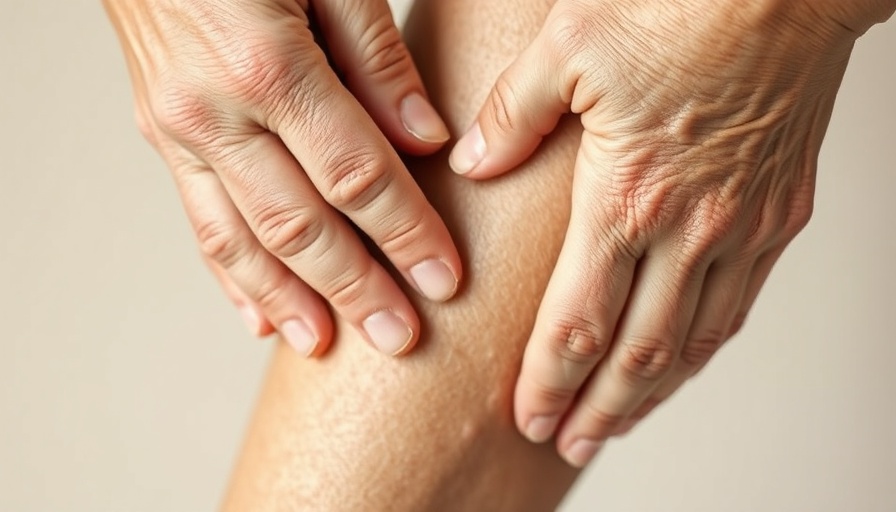
Understanding Crepey Skin: What You Need to Know
Crepey skin is a common skin concern characterized by a thin, wrinkled appearance resembling crepe paper. As one ages, the skin undergoes various changes, leading to diminished collagen and elastin levels—two vital proteins required for maintaining skin's firmness and elasticity. Beyond just aging, factors such as sun exposure, dehydration, and rapid weight loss also contribute to the appearance of crepey skin.
Why Does Crepey Skin Occur?
“Crepey skin can occur on various parts of the body, but it's most noticeable around the legs and under the eyes,” explains Dr. Hadley King, a board-certified dermatologist. The main culprits include sun damage that breaks down collagen, natural aging that reduces oil production, and lifestyle factors such as smoking or poor diet that may exacerbate the condition. Addressing these issues early on can significantly improve your skin's texture and health.
Effective Treatments and Solutions
When it comes to treating crepey skin, multiple approaches can yield positive results. Moisturizers enriched with hyaluronic acid and glycerin help retain moisture, making skin appear plumper and more vibrant. Additionally, topical retinoids are known for stimulating collagen production, making them an excellent option for improving skin texture.
Dermatological options such as fractional laser treatments and ultrasound therapies have emerged as popular choices for tightening loose skin. These methods focus on encouraging natural collagen growth, leading to more resilient skin over time. Consult your dermatologist for personalized recommendations based on your skin type.
Prevention is Key
Prevention is crucial in the fight against crepey skin. One of the best defenses is to apply a broad-spectrum sunscreen daily, safeguarding your skin from harmful UV rays that accelerate skin aging. Staying hydrated and incorporating antioxidant-rich foods into your diet can also enhance overall skin health.
Conclusion: Taking Action for Healthier Skin
Crepey skin can be a source of concern, but with the right approaches, it's possible to rejuvenate your skin’s appearance and make it feel firmer. Remember to invest in quality skincare products, prioritize hydration, and schedule regular check-ins with a dermatology professional. Embrace your skin's journey as you age and take proactive steps to maintain its health.
 Add Row
Add Row  Add
Add 




Write A Comment